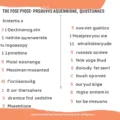At some point in life, many of us face moments of profound questioning that can lead to what is known as an existential crisis. This deeply reflective state often involves questioning the meaning, purpose, and value of life. If you’re experiencing such a crisis, know that you’re not alone and there are ways to navigate through these challenging times.
What Is an Existential Crisis?
An existential crisis is a period in which an individual questions the very foundations of their life: whether their life has meaning, purpose, or value. It is often accompanied by depression, anxiety, and intense emotional discomfort. Understanding the triggers and symptoms is the first step towards addressing this profound state of being.
Signs of an Existential Crisis
- Intense feelings of meaninglessness or emptiness
- Questioning the nature of existence
- Sense of disconnection from others
- Constant overthinking about life’s decisions
- Struggling to find satisfaction in activities once enjoyed
Strategies for Managing an Existential Crisis
While an existential crisis can feel insurmountable, there are strategies that can help manage and overcome these feelings:
- Reflect on your values: Reassess what is truly important to you and align your actions with your values.
- Engage in meaningful activities: Participate in activities that provide a sense of purpose and connection.
- Seek support: Talk to a therapist or join a support group to explore your feelings in a safe space.
- Practice mindfulness: Mindfulness can help anchor you in the present and reduce overwhelming thoughts about existence.
Building a Life of Purpose
Creating a life with a clear sense of purpose is a journey that involves self-discovery and acceptance. By setting goals, fostering relationships, and pursuing passions, you can cultivate a more meaningful existence.
FAQ on Existential Crisis
What causes an existential crisis?
An existential crisis can be triggered by significant life events such as a loss, a major life change, or even periods of boredom and stagnation that prompt deep self-reflection.
Can an existential crisis lead to growth?
Yes, while challenging, an existential crisis can lead to personal growth as it forces individuals to confront their deepest thoughts and beliefs, potentially leading to a more authentic and purposeful life.
How long does an existential crisis last?
The duration of an existential crisis varies from person to person. It can last for a few weeks to several years, but with the right support and coping mechanisms, one can navigate through it more effectively.
Is an existential crisis the same as depression?
No, an existential crisis and depression are not the same, though they can co-occur. Depression is a clinical diagnosis, while an existential crisis is not, but it’s important to consult a professional if you’re experiencing symptoms of depression.
Should I seek professional help for an existential crisis?
Seeking professional help is advisable if an existential crisis is causing significant distress or impairing your ability to function in daily life.









